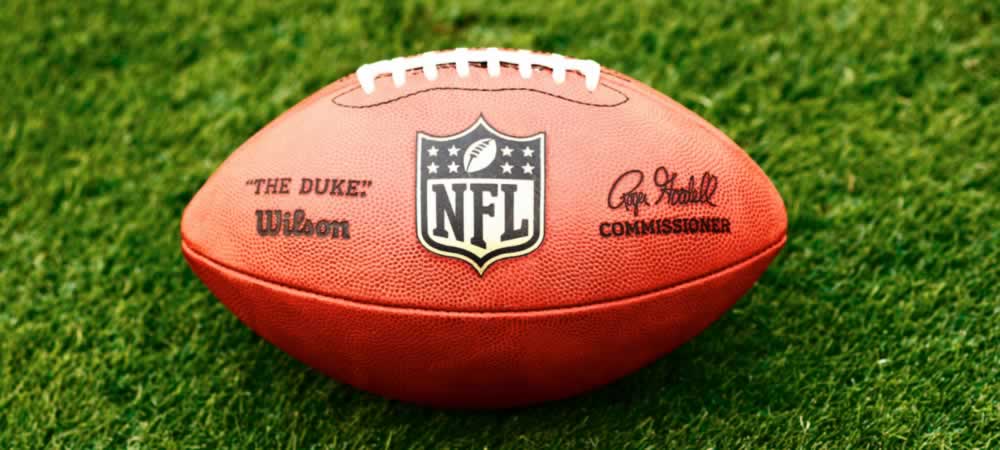- Every NFL commissioner since the 1960s has spoken outwardly against the spread of legal sports betting in the United States.
- Different NFL teams have taken different stances in regard to betting on the NFL.
- While the NFL has not made partnerships with legal sports betting businesses, they have made deals with companies involved in the industry.
- The Oakland Raiders will move to the city of Las Vegas in 2020. Las Vegas is the single largest sports betting market in the U.S.
CHICAGO – The 2019 NFL season will kick off this Thursday at Soldier Field when the Green Bay Packers take on the Chicago Bears. It’s fitting that the 100th season of the league starts with one of the oldest rivalries in the sport. It is also ironic that it begins in a place where legal sports betting may soon come.
In June of 2019, Illinois Governor J.B. Pritzker signed IL SB 690 into law. The bill not only legalized sports betting in Illinois, but it also gave Soldier Field the ability to offer the activity at the stadium.
The NFL’s stance on sports betting has changed throughout the years, but none more so than after the repeal of PASPA in 2018. The league and its individual teams have all taken a unique approach to the activity.
The league has taken the approach of lobbying the federal government, teams have lobbied state governments, and teams have even started to offer betting apps of their own. We’ll take a look at how NFL betting has changed throughout the years, and where it can be headed in the future.
How NFL Commissioners Have Felt About NFL Betting
Pete Rozelle, who served as the commissioner of the NFL from 1960 to 1989, was the first in his position to have to face NFL betting head-on. He suspended two players in 1963 for betting on NFL games and went on to express his opposition to the activity in an interview with Sports Illustrated in 1963.
“This sport has grown so quickly and so much of the approval of the American public that the only way it can be hurt is through gambling,” said Rozelle.
Rozelle’s successor, Paul Tagliabue, took a similar approach to the topic and spoke outwardly against legal sports betting leading up to the signing of the Professional and Amateur Sports Protection Act of 1992 (PASPA). PASPA banned any state from enacting sports betting laws.
“The issue of sports gambling and the National Football League’s interest in this issue is not an economic or a commercial interest. It is a matter of integrity. It is a matter of the character of our games, of the character of our fans and a matter of values—especially the values that we in professional sports and our athletes represent and transmit to the youth of this country,” said Tagliabue during a U.S. House of Representatives hearing in 1991.
PASPA limited full-service sports betting to just Nevada for over 20 years, but since it was repealed on May 14, 2018, several other states have made sports betting legal. Roger Goodell, the current commissioner of the NFL, issued a statement following the 2018 ruling.
“We have spent considerable time planning for the potential of broadly legalized sports gambling and are prepared to address these changes in a thoughtful and comprehensive way, including substantial education, and compliance trainings for our clubs, players, employees, and partners,” said Goodell.
The NFL Since The Repeal Of PASPA
The NFL has been making moves floating around legal sports betting for years now.
In 2007, the league played its first game in London, England, a country and city which allow for sports betting. In 2017, NFL owners approved the relocation of the Oakland Raiders to the historic sports gambling city of Las Vegas, Nevada.
Now that sports betting has expanded to a quarter of the states in the US, the NFL has taken more subtle approaches to embrace the industry.
In January of 2019, the NFL named Caesars Entertainment as the official casino sponsor of the league. While not a direct sports betting partnership, the deal allows Caesars to use official NFL trademarks within its casino properties, many of which now have sportsbooks.
The NFL also expanded its partnership with its data distribution provider, Sportradar. Sportradar can now distribute official league data to US sportsbooks. This week, it was reported that Sportradar is asking for a 1.5% cut of all revenue generated from live NFL betting that was made with the use of official league data.
While it hasn’t been confirmed whether or not the NFL supports this proposition, the league continues to tip-toe around the sports wagering industry.
How Teams Have Embraced NFL Betting
Certain teams across the league have taken a head-on approach to betting on NFL games.
The Washington Redskins hosted the NFL’s first-ever game with live predictive betting during their first 2019 pre-season matchup. While not traditional sports betting, a telecast of their game on NBC Sports Plus featured questions similar to prop bets that viewers could answer for a chance to win real money.
The Los Angeles Rams took a similar approach by launching their Pick’em app in August as well. Their app can be used throughout the country and allows fans to make real-time predictions during Rams games. Those that make correct predictions are eligible to win exclusive prizes.
The Green Bay Packers have taken a similar approach to the NFL and have taken a more indirect route to get involved in the industry. Just last week, the Packers announced an extended partnership with the Oneida Nation. The Oneida Nation operates several sportsbooks and will have a banner advertisement on display at one of Lambeau field’s gates.
Public perception on sports betting has changed over the past 100 years, and as legal NFL betting starts to spread across the country, the league and its teams will likely have no choice but to embrace the industry.
Advertising Disclosure
In order to provide you with the best independent sports betting news and content LegalSportsBetting.com may receive a commission from partners when you make a purchase through a link on our site.
News tags: Caesars Entertainment | Chicago Bears | Green Bay Packers | Illinois | Las Vegas | Los Angeles Rams | NFL | Oakland Raiders | Paul Tagliabue | Pete Rozelle | Roger Goodell | Sportradar | Washington Redskins

– In his career, Hasan has worked both local and state government positions—including the Attorney General’s Office in Florida. On top of being familiar with the legislative process, he has also been researching and writing on the legality of sports betting across the US. Outside of work you’ll most likely find him producing or playing music, playing sports, or working on creative writing projects. You’ll also catch him at Doak Campbell Stadium cheering on the Noles.


 Bitcoin Sports Betting Sites
Bitcoin Sports Betting Sites Best Online Sports Betting
Best Online Sports Betting Famous Sports Bettors
Famous Sports Bettors States With Legal Sports Betting
States With Legal Sports Betting Sports Betting Events
Sports Betting Events




